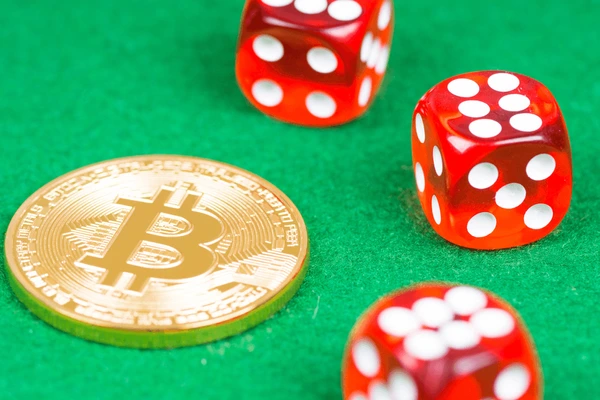
bitcoin trading market data chart. virtual cryptocurrency concept
The dopamine response to Bitcoin dice begins not with winning but with anticipation. Neuroscience research has consistently shown that dopamine release peaks during the anticipatory phase of potential rewards rather than after receiving the reward. This explains the intense focus many players experience in the brief moment between placing a bet and seeing the result.
During this anticipatory window, the brain’s dopamine pathways activate, creating a sensation that combines excitement, hope, and tension. There is often a ” rush ” sensation during this phase, linked to dopamine release in the nucleus accumbens, the reward system. This anticipatory dopamine surge creates a pleasurable sensation regardless of whether the subsequent roll results in a win or loss.
Variable reward schedules
Bitcoin dice platforms leverage what behavioural psychologists call variable reward schedules, unpredictable patterns of reinforcement that prove remarkably effective at maintaining behaviours. Unlike fixed reward schedules with predictable outcomes, variable rewards create more substantial and resistant behavior patterns.
Each dice roll represents a chance-based reward opportunity that could result in anything from losing your stake to winning many times your bet amount. This unpredictability is neurologically captivating, as the brain’s dopamine system responds more vigorously to unexpected rewards than to predictable ones. When players occasionally hit big wins after a series of losses, the contrast creates a potent dopamine response that strongly reinforces continued play.
The ability to modify odds gives players more control over outcomes when they play bitcoin dice on crypto.games. This ability to personalize the gambling experience adds another layer to the dopamine-driven engagement by giving players a sense of control over their potential neurochemical rewards.
Rapid cycles amplify responses
The extremely short duration of Bitcoin dice betting cycles significantly impacts its dopamine-inducing potential. Unlike traditional gambling forms where minutes might pass between wagers, Bitcoin dice platforms often allow multiple bets per second. This rapid cycling creates a condensed pattern of anticipation and resolution that can lead to a virtually continuous dopamine response.
Neuroscientists have observed that shorter intervals between stimuli prevent dopamine levels from returning to baseline, potentially creating a sustained elevated state. For players engaging in rapid successive bets, this results in prolonged dopamine in the brain’s synapses, enhancing the overall reinforcement effect and making it harder to disengage from the activity.
Active decision-making intensifies the response
Unlike passive forms of gambling, such as slots, Bitcoin dice typically involve active decision-making regarding bet size and target numbers. This cognitive engagement amplifies dopamine response through what neurologists call agency, the sense of control over outcomes. When players believe their decisions meaningfully impact results, the brain responds with enhanced dopamine release.
The ability to adjust odds and potential payouts creates a false perception of skill-based influence that particularly resonates with cryptocurrency enthusiasts, who often value systems where mathematical understanding appears to convey advantages. This perceived connection between decision quality and outcomes strengthens the neurological reinforcement cycle.
Transparency enhances trust
Unique to cryptocurrency gambling is the element of provable fairness through blockchain verification. This transparency addresses gamblers’ inherent suspicion toward traditional online gaming platforms. From a neurological perspective, reducing uncertainty about game fairness allows players to focus more entirely on the gambling experience.
The anticipation and dopamine-driven engagement of the game are fully realized when players trust the system’s fundamental fairness. This clean engagement with the core gambling mechanism creates a more direct and potentially more powerful dopamine response cycle than might occur in environments where trust is compromised.








